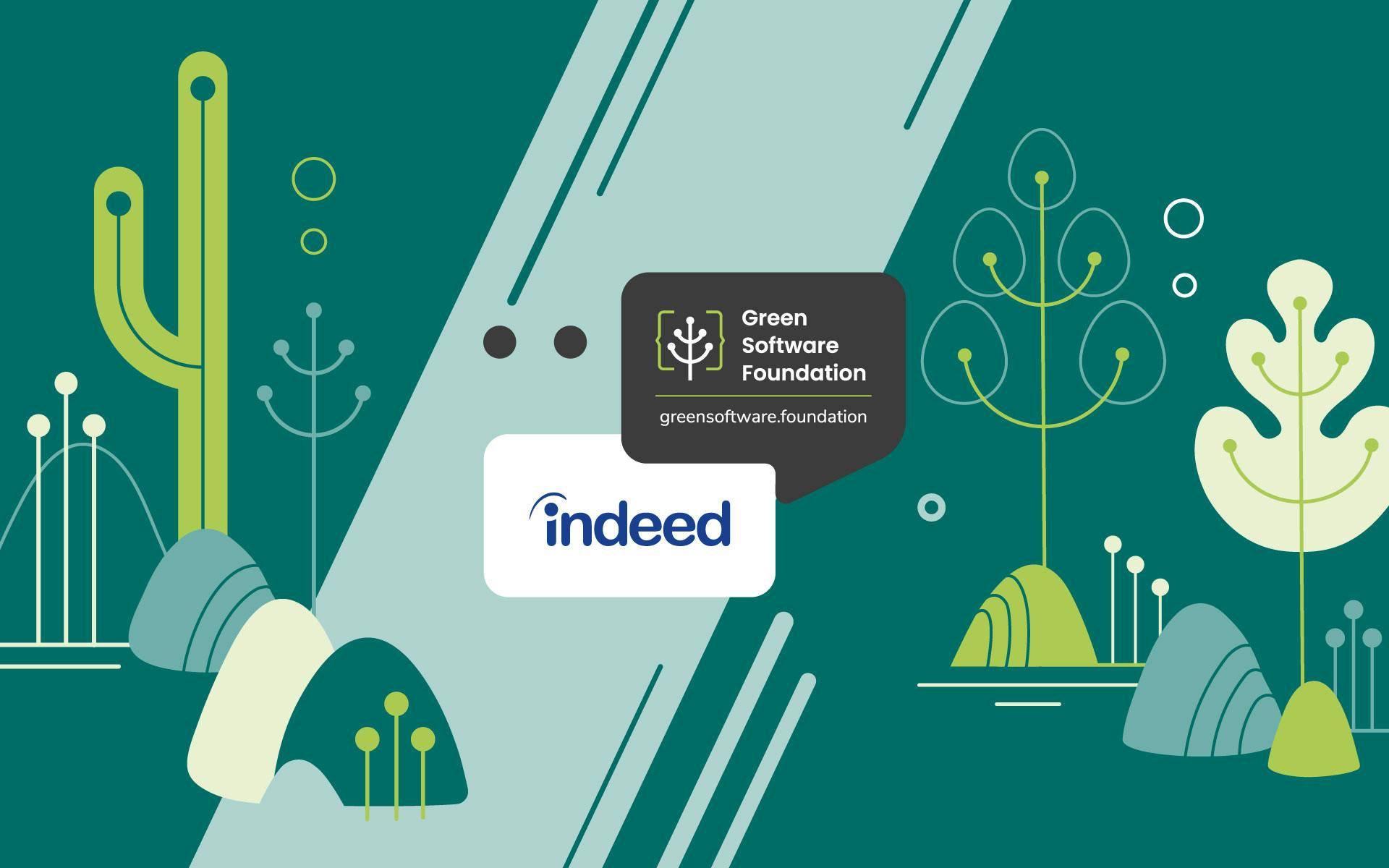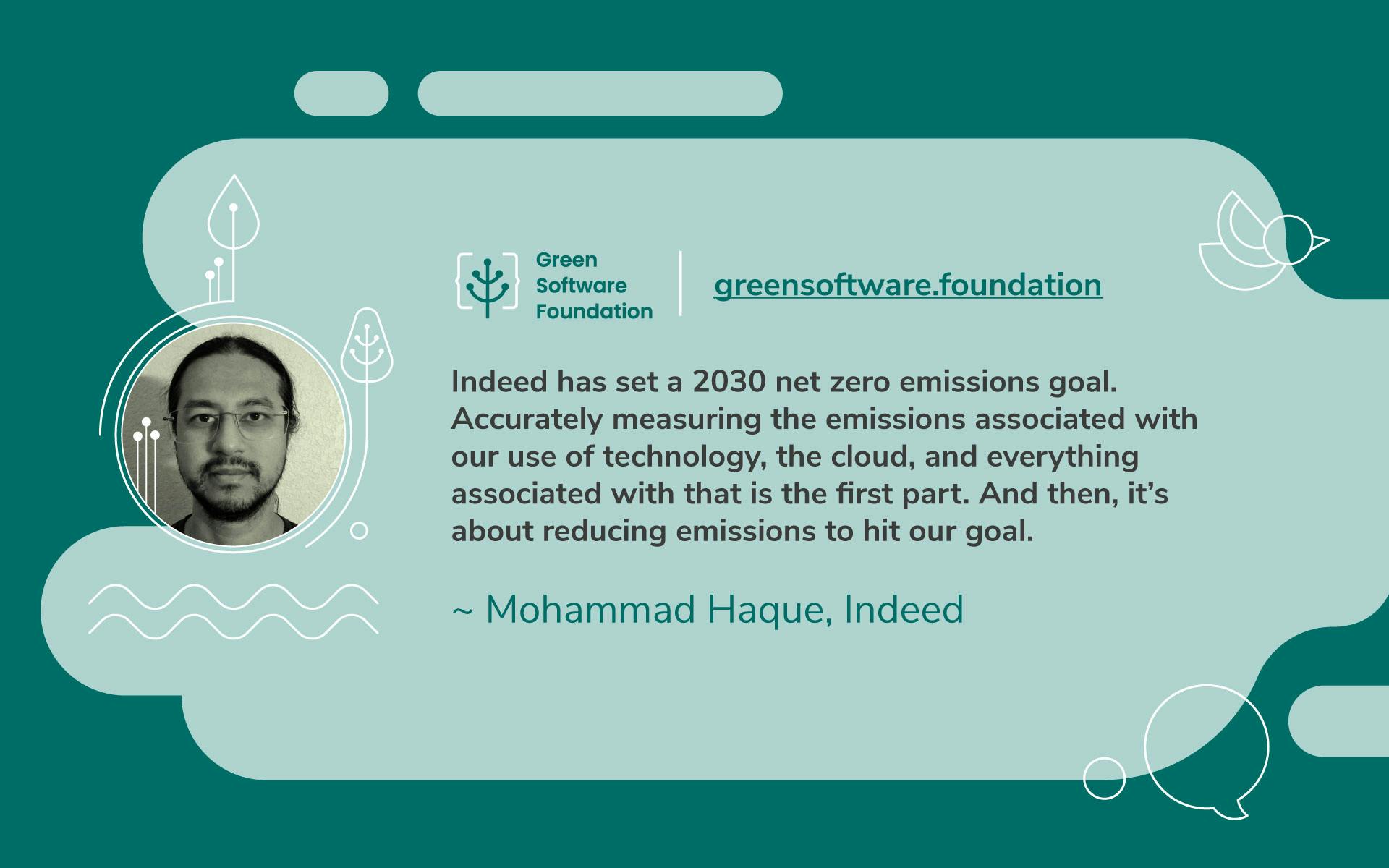As an Indeed user, it wouldn’t have occurred to me that you are big on sustainability.
That’s right, we have a sustainability team and are committed to Environmental, Social and Governance (ESG) goals. The team is working on finding ways to reduce the company's environmental impact. Starting with open entry surveys, we found our employees have questions and are interested in the topic. We formed a volunteer group where people can bring up and talk about sustainability issues, which has really helped with raising awareness.
On my part, I have formed the Green Engineering Guild, which is a working group addressing the environmental impact of engineering within the company. We have other guilds, e.g., dedicated to Python, Java, or Rust, and such dedicated to other engineering topics like documentation and testing.
Technologically, what enables Indeed's talent and recruitment engines?
Technology is a massive part of our business model. We're first and foremost a job search engine, but we also offer services through the Indeed platform specifically related to hiring. And then there are other benefits that we provide to job seekers. All of that is built on technology. The job search has to run servers with low latency and high performance. Take the online job interview platform, for instance. All of it relies on software and technology.
How did you find out about the GSF?
I got immersed in sustainability with my working group, which sparked several great conversations with managers and engineers. We learned about the Green Software Foundation while researching what others were doing in the green technology space, and realized being a part of the GSF community would save us from doing the heavy lifting on our own to meet our goals. The prospect of being part of a wider community of engineers and developers and working together on creating solutions to the problems we had identified is very appealing to me.
You touched on ESG. What is your main goal concerning sustainability within the organization?
My main goal is to ensure we are building products and running them in a sustainable fashion. I think sustainability isn't something many engineers currently think about, certainly not at the level of accessibility or security. It’s essential to build awareness around the fact that there is a sizable environmental impact when it comes to software. This also encompasses developers thinking about ways to make developing cleaner.
As a corporation, Indeed has a 2030 net zero emissions goal. Accurately measuring the emissions associated with our use of technology, the cloud, and everything associated with that is the first part. And then, it’s about reducing emissions to hit our goal.
How do you see green software making an impact at Indeed?
Green software is creating tools and products as cleanly as possible and making them run with as little environmental impact as possible. That involves looking at all aspects of our technology stack. The hardware and the way it's manufactured, configured, and maintained, how the data centers are powered. Then, what are the electricity sources, and what are the emissions associated with those? Which emissions are associated with manufacturing and shipping?
Another aspect is the resources involved in maintaining our systems and making sure that we only use what is absolutely necessary and that we run everything as efficiently as possible. We can use green software principles, benefit from times of cleaner energy in the grid, or use data centers that use energy more efficiently. We must also consider how we develop our tooling; are we using the best languages? Is tooling easy to maintain? All these things factor in.
Are you currently applying any principles of green software engineering and development?
Not yet. We've been trying to set up our tooling and to get accurate measurements. Ideally, we'd like to take advantage of demand shifting, where we run specific tasks when the energy is clean (learn more about carbon aware computing).
How do you see the future of green software?
Green software will continue to be a very important field. Our use of software is only increasing over time, especially with the recent interest in AI and machine learning. They all require compute-intensive tasks and tools. Being able to run them sustainably is going to be critical. Software tends to be seen as an abstract thing that just runs; the impacts are obscure, out of sight, out of mind. But as global warming continues, we need to focus on it more than ever.
What can we do to further the cause of green software?
The main challenge is awareness. When I started our guild, I remember a comment that there wasn’t much engineering work to be done here. I think that points to a lack of awareness about what’s achievable and why greening software is crucial. We need to nurture more understanding of what’s possible, what we can do, and how we can make those changes.
How will you be involved in the GSF?
I've signed up for the opensource, community and standards working groups. I know that the GSF is already working on some of the internal tooling that we've been trying to build around measuring and benchmarking emissions. We can leverage that without having to reinvent the wheel. I want to actively contribute to the development of those projects.

This article is licenced under Creative Commons (CC BY 4.0)
